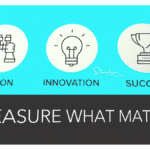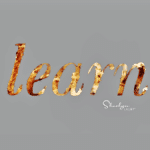I recently received a question from a reader asking about professional development resources for HR professionals.
Hello Sharlyn. I read an article called “How to get an entry-level job in HR” that had a few quotes from you. I’m switching careers to HR and looking to go to back to school in the fall and I’m trying to find a good place to start educating myself.
I want to begin reading books about HR but there is so much out there which makes it a little daunting on where to start. I was wondering if you had any recommendations.
I get it. There are lots of resources available for human resources. That’s a good thing. But where to start can be daunting and expensive. Here are five resources that I would suggest to a fellow HR pro and the first two are FREE!
How to Get Your First Job in Human Resources
My start in human resources wasn’t through the normal career path. After an auto accident left me physically unable to do my job, the company I worked for transferred me into human resources. And they provided me with training to be successful. So, I certainly wouldn’t recommend that anyone go through the professional development that I did to get into HR.
In this article, I talk with Steve Browne, SHRM-SCP. He’s currently vice president of human resources for LaRosa’s, Inc., a regional pizzeria restaurant chain based in Ohio. And he’s on the board of directors for the Society for Human Resource Management (SHRM). I’ve had the pleasure of knowing Steve for years and I can attest to him being one of the most dedicated people in the HR profession.
6 Ways to Improve Your Business Acumen
This shouldn’t be a surprise to anyone, but business acumen is one of the behavioral competencies in the Society for Human Resource Management (SHRM) competency model. It’s important to know the business, be able to talk about it, and make decisions to help the business grow.
But honestly, it can be challenging to develop business acumen. Oh sure, a lot of people throw business buzzwords around like “customer journey” and “wheelhouse” but do they really know everything those terms mean? In today’s business world, new concepts are being developed all the time. It’s a challenge to stay on top, especially when your plate is already full of work.
In this article, I list my favorite activities for building business acumen.
The 9 Faces of HR – Which One Are You
In my very first blog post on HR Bartender, I talk about how our actions speaks louder than words. And all these years later, that old cliché still rings true. As HR professionals, we need to figure out what we want to be known for and demonstrate it with our actions. The good news is we don’t have to figure it out all on our own.
Kris Dunn, author of the HR Capitalist, has written a book titled “The 9 Faces of HR: A Disruptor’s Guide to Mastering Innovation and Driving Real Change”. The book does a deep dive into career development for human resources professionals. This is a topic that I don’t believe HR pros spend a lot of time doing because we’re so busy taking care of everyone else in the company.
A Manager’s Guide to Developing Competencies in HR Staff
Workplace leaders are challenged with not just having people who can do the job today, but who are prepared to step up when things change tomorrow. The Guide provides an easy-to-use roadmap for HR managers and small business executives to develop employee proficiency in the core HR competencies. Loaded with tips, techniques, assessments tools, and real-life stories of management successes, it takes the mystery out of HR staff development by showing the value of the SHRM competencies in business and then clearly establishing the links between various competencies and HR functions.
I regularly recommend Phyllis’ book to HR colleagues because it’s filled with practical job aids.
It also offers activities HR managers can use to develop their own competencies and features proficiency indicators for different levels of HR staff and charts and forms to help make the process of developing HR staff a little easier.
How to Develop a Plan for Self-Directed Learning
A couple of years ago, I wrote about Debra Cohen’s book “Developing Proficiency in HR: 7 Self-Directed Activities for HR Professionals”. In it, she talks about professional development using a “career portfolio”. I like to think of career portfolios as something similar to a graphic artist’s portfolio. It’s a place – either physical or digital – where someone can keep their career-related accomplishments. The portfolio can remind us of our learning accomplishments especially when we’re having conversations with our manager about goals, career aspirations, etc.
Cohen has a new book out titled, “Developing Management Proficiency: A Self Directed Learning Approach”. Personally, I can’t think of a better time to be talking about self-directed learning. It’s always been important but given the level of remote work we’re experiencing, even more so now. Employees have to find ways to continue learning and keep their skills relevant.
Even if you’re not planning to go back to school and earn a degree in human resources, I hope you’ll find these articles and resources helpful. As human resources professionals, we need to create plans for our own professional development. It’s not only good for us but for the organizations we work with.
Image captured by Sharlyn Lauby while exploring the streets of Tampa, FL
16







